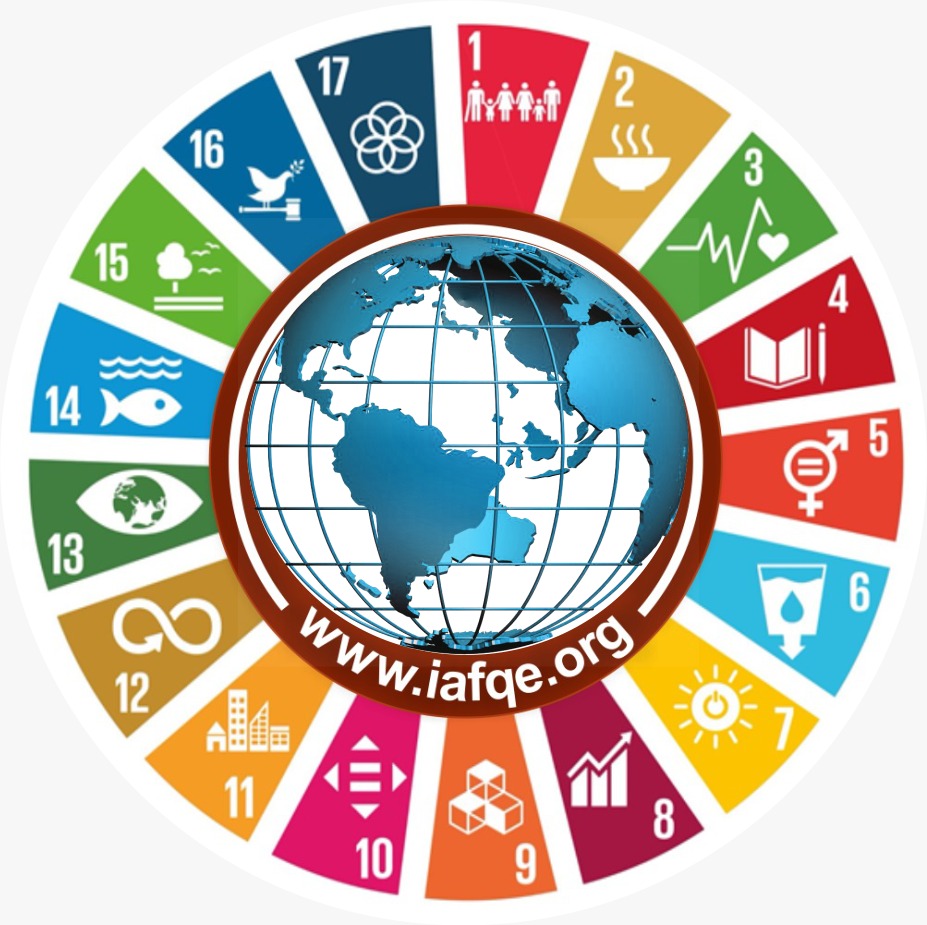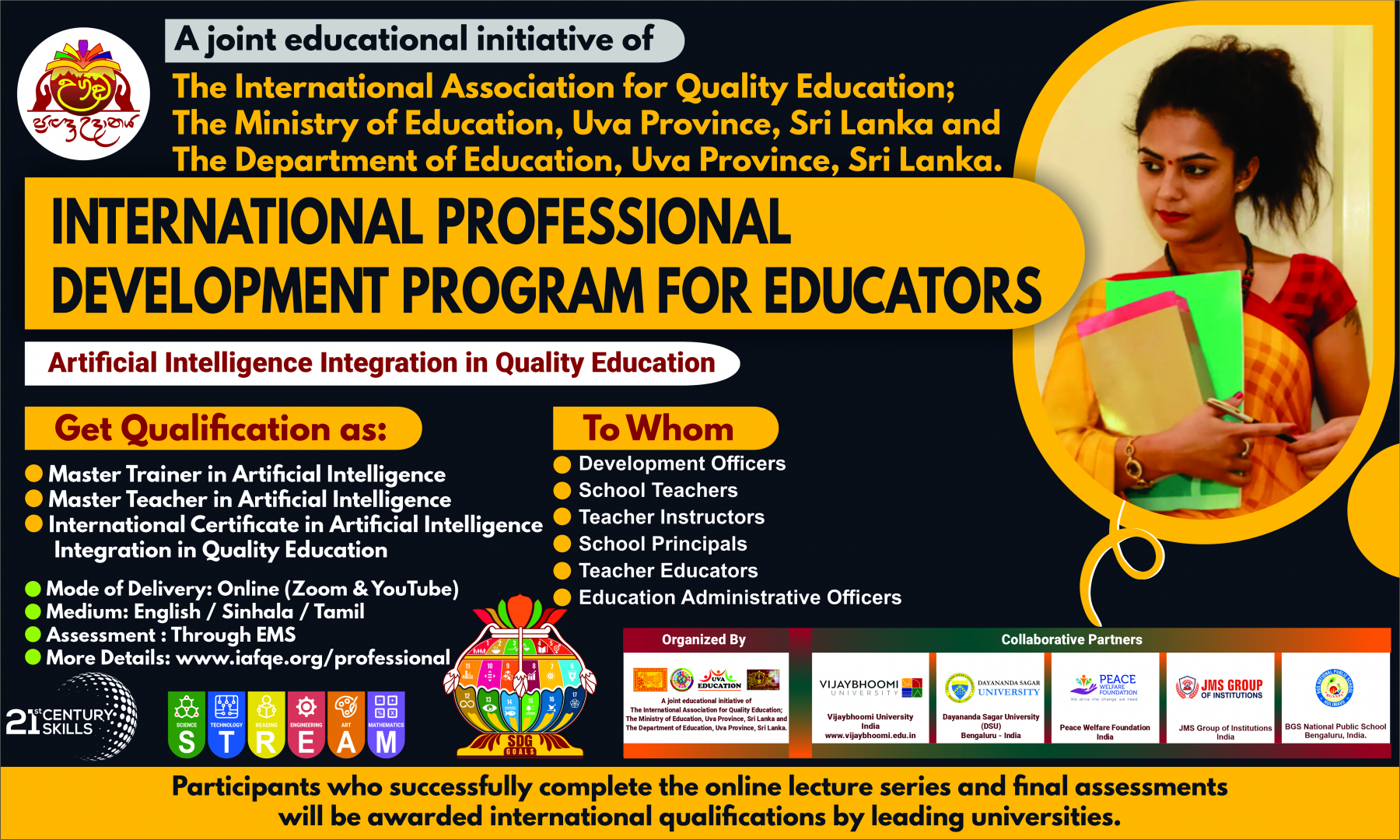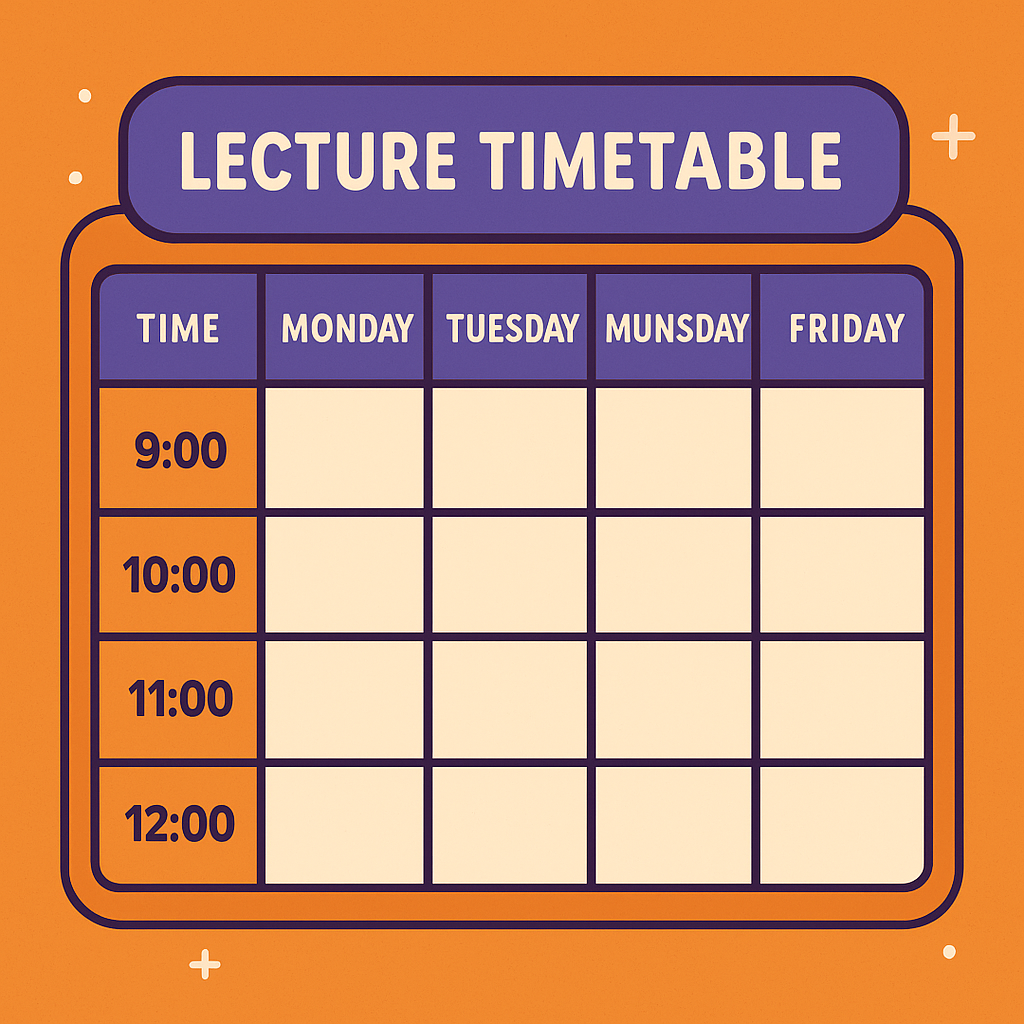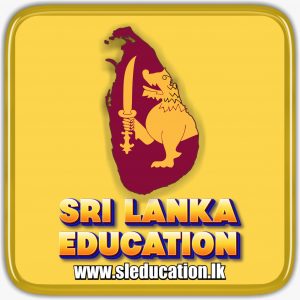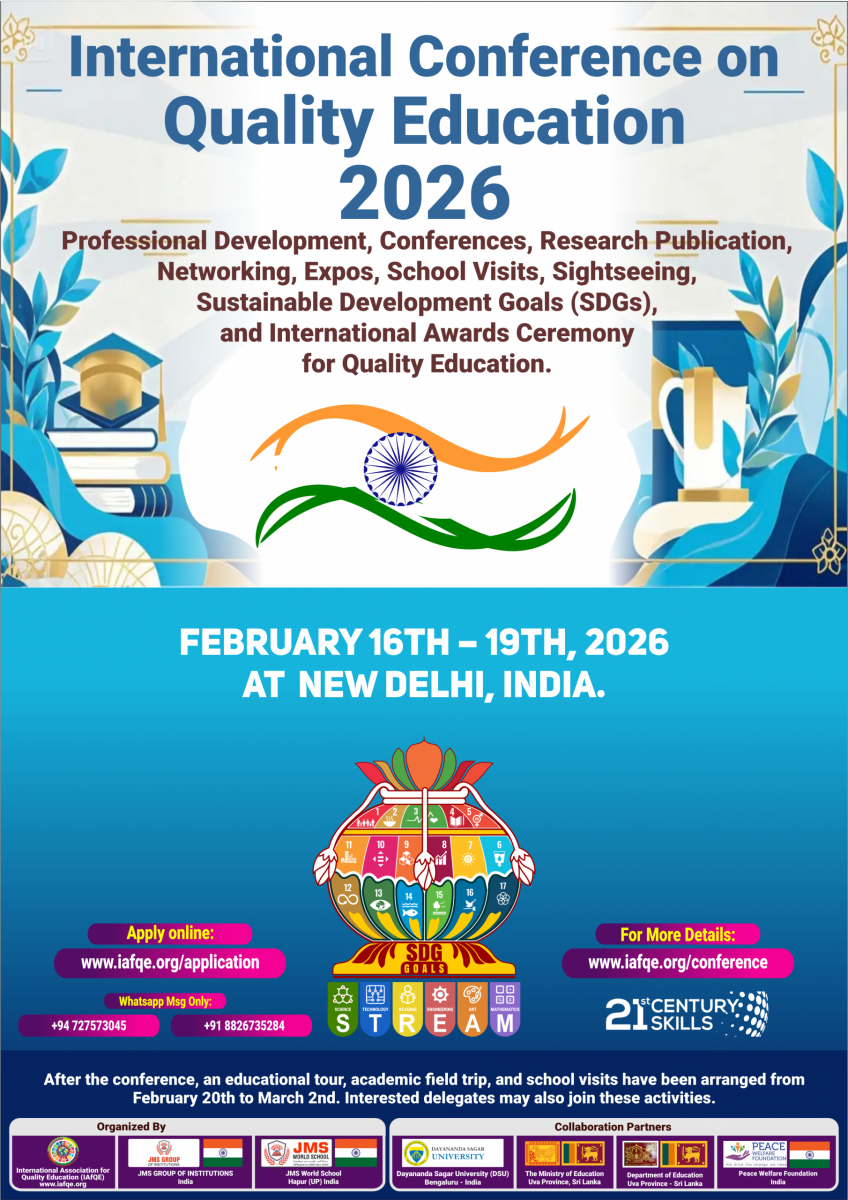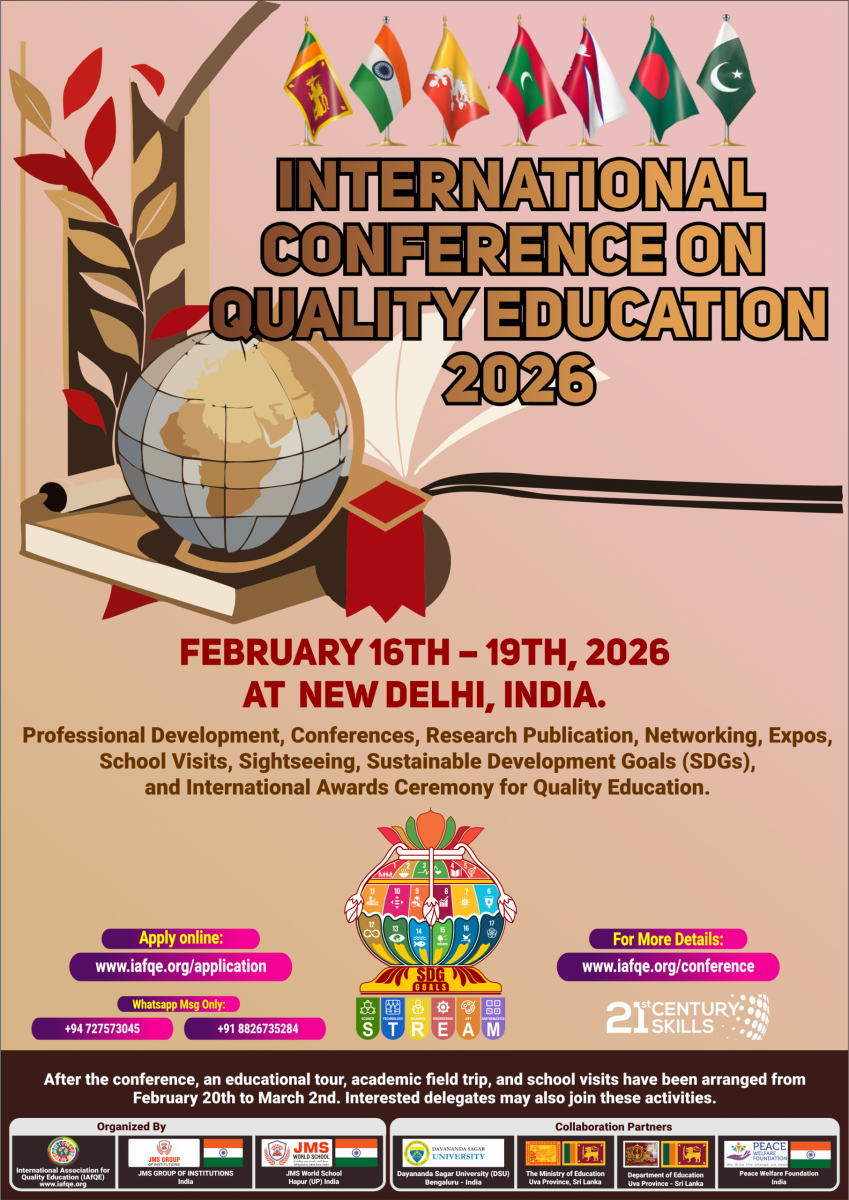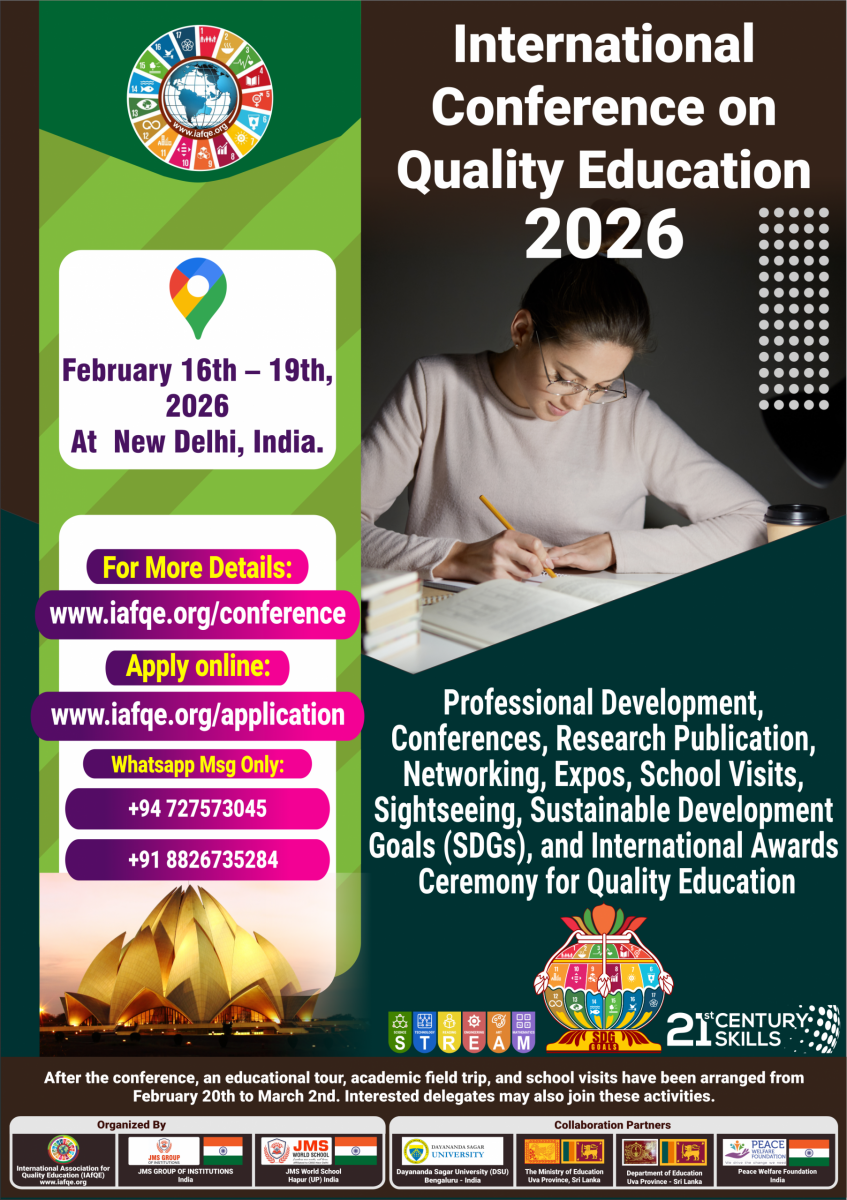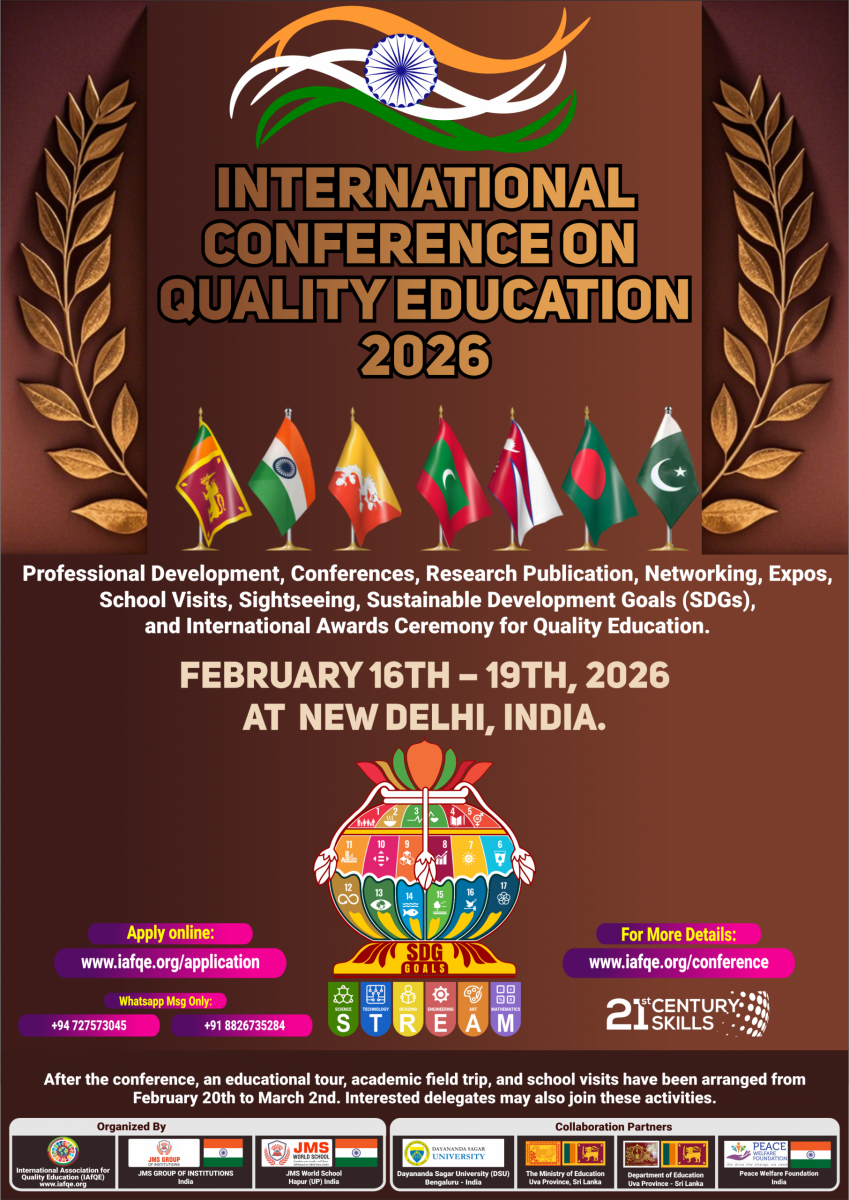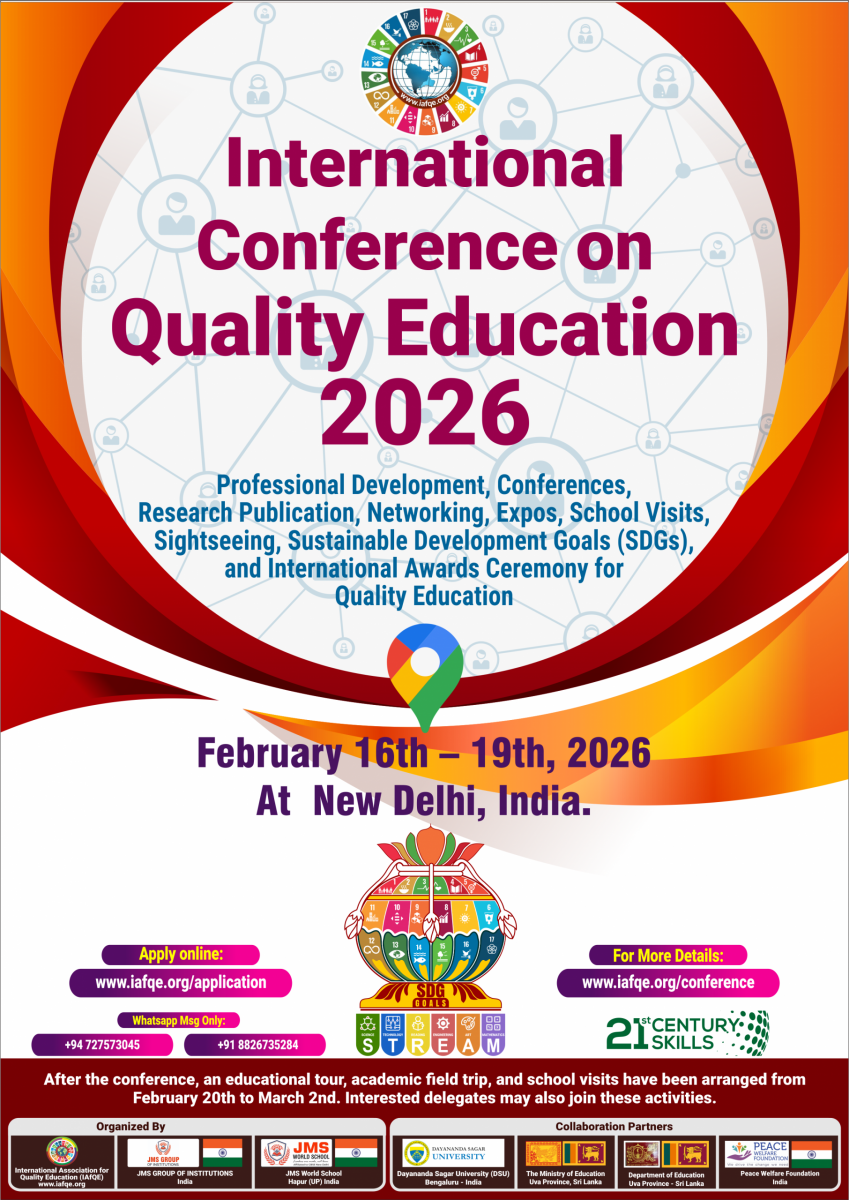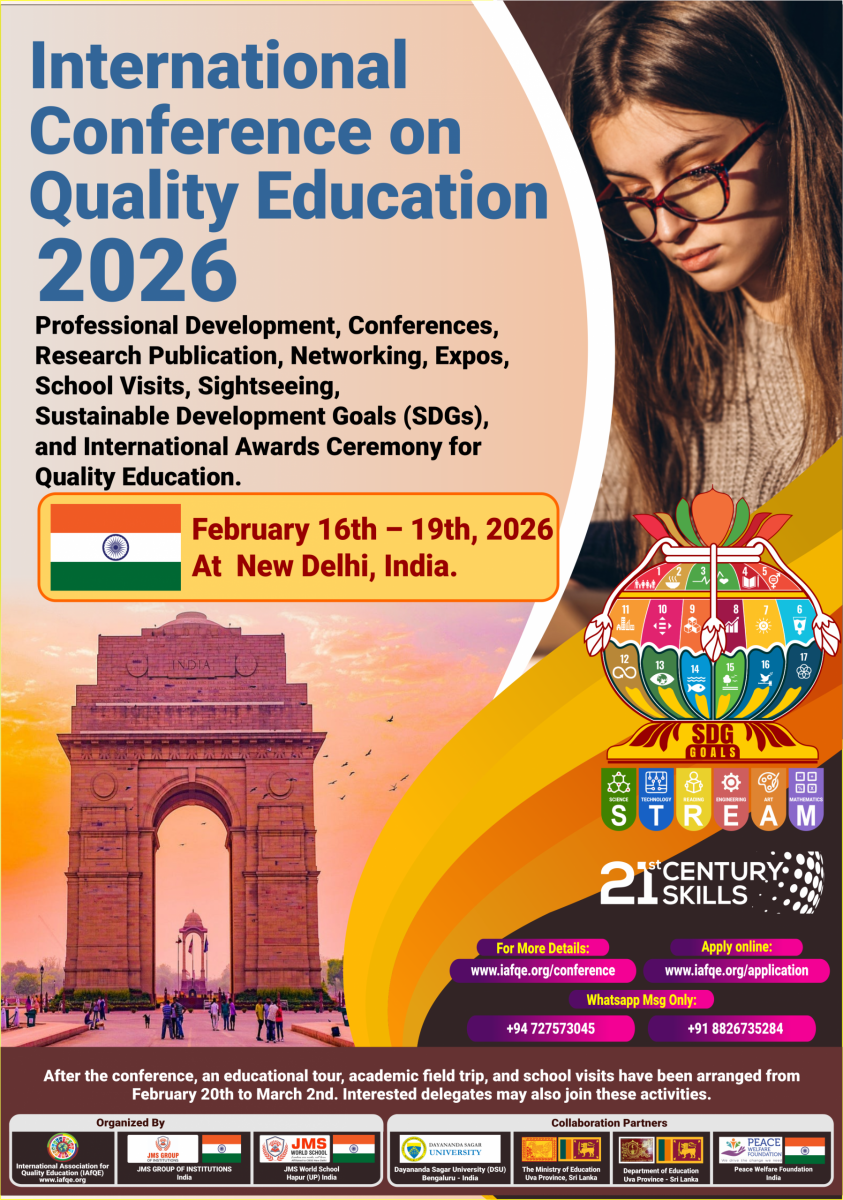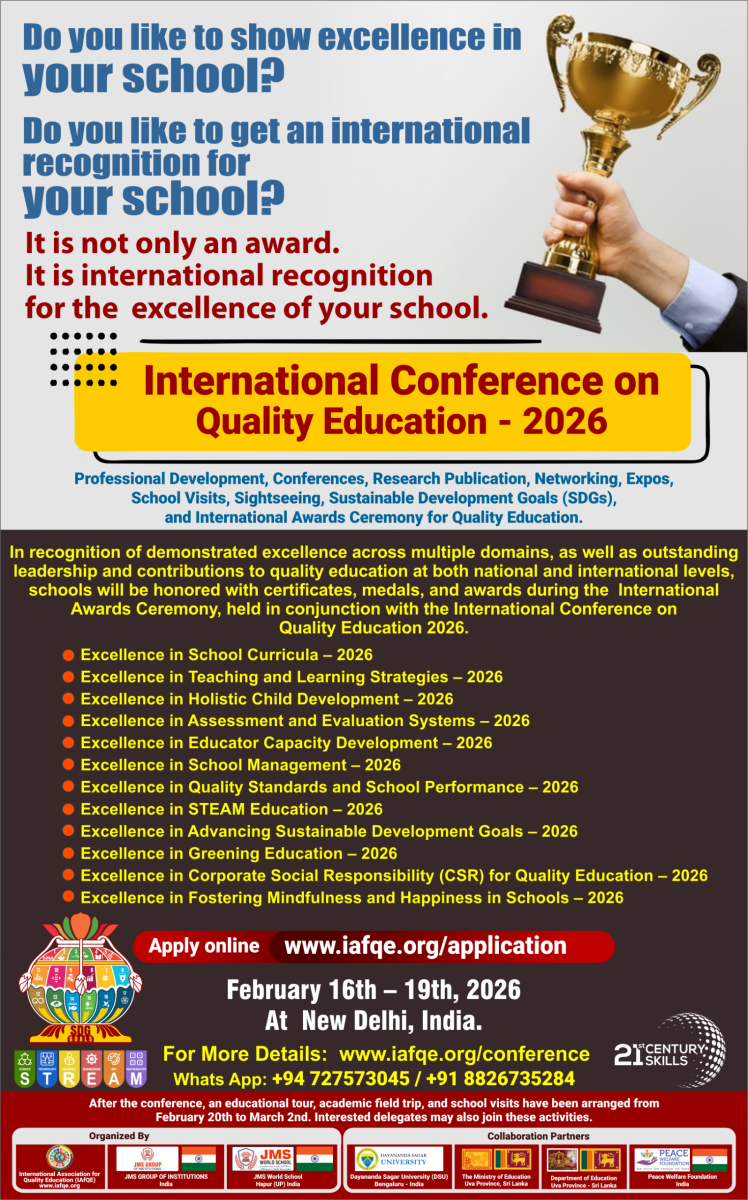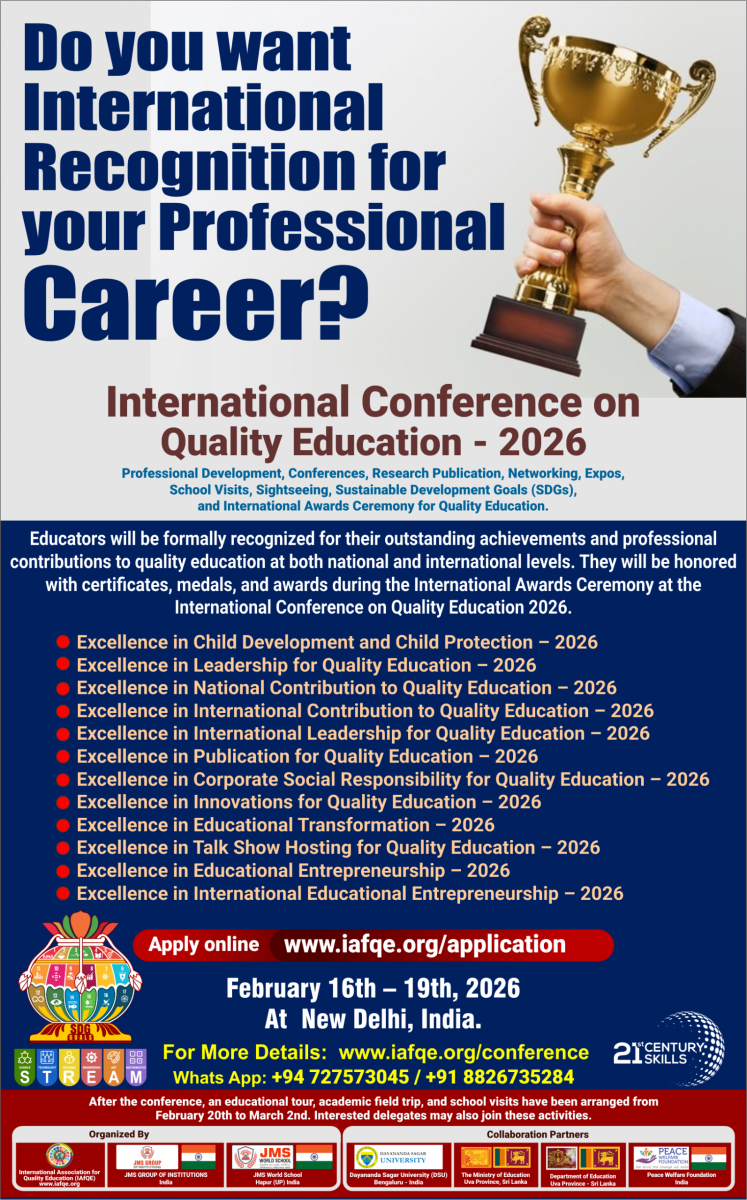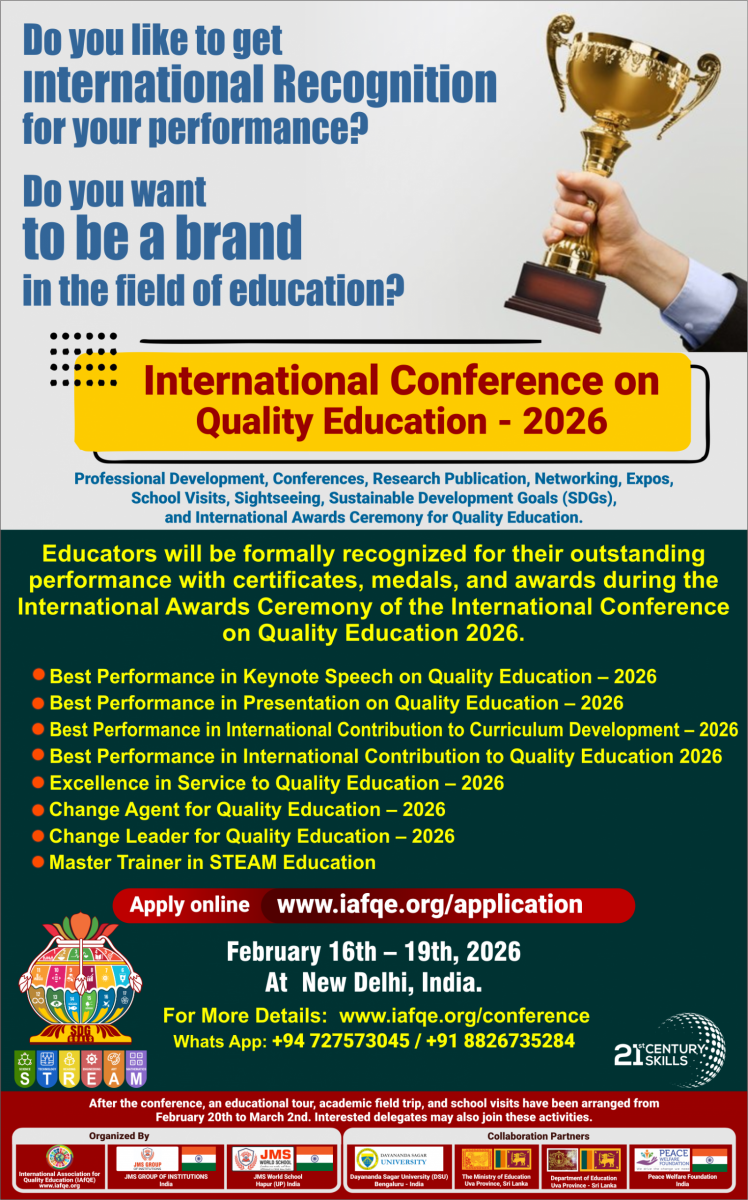ඌව ප්රඥා උදානය
ஊவாவில் ஞானத்தின் விடியல்
The Dawn of Wisdom in Uva
International Professional Development Program for Educators
A joint educational initiative of The International Association for Quality Education;
The Ministry of Education, Uva Province, Sri Lanka; and The Department of Education, Uva Province, Sri Lanka with the collaborative partnerships of universities, organizations, schools, and educational leaders from the global community.
Educators who successfully complete all lectures, assignments, and the final examination associated with their selected subject areas will be eligible to receive international certificates. These certificates will be awarded at the International Awarding Ceremony of the International Conference on Quality Education, scheduled to be held in Sri Lanka.
The lecture series required to obtain these international certificates is currently available.
01. International Diploma in STREAM Education (Pre primary and Primary Educatoers)
02. Effective Classroom Management for Quality Education
(Click here to watch all presentations)
03. International Certificate on Transformative Leadership and Strategic Management for Advancing Educational Excellence m (Click here to watch all presentations)
04. Teacher Education and Training for Quality Education
05. Reserch methodologies for Quality Education
Participants from any part of the world may complete the lecture series and qualify for the certificates.
1. Executive Summary
The Ministry of Education recognizes the urgent need to prepare educators for the demands of 21st-century education. Traditional teaching methods are increasingly insufficient for addressing the global challenges of technology-driven, knowledge-based societies.
This proposal outlines a comprehensive international certificate program designed to empower teachers, principals, and teacher educators with modern pedagogical skills and STREAM-based methodologies. Delivered online, the program integrates STREAM (Science, Technology, Reading, Engineering, Arts, Mathematics), Artificial Intelligence in Education, research methodologies, and global best practices.
The initiative aims to:
-
Build the professional capacity of teachers and school leaders
-
Promote evidence-based, innovative pedagogical practices
-
Develop a strong research culture in schools
-
Provide internationally recognized certification
The program is aligned with the Ministry’s vision to enhance quality education, strengthen teacher development, and contribute to national and global educational reform efforts.
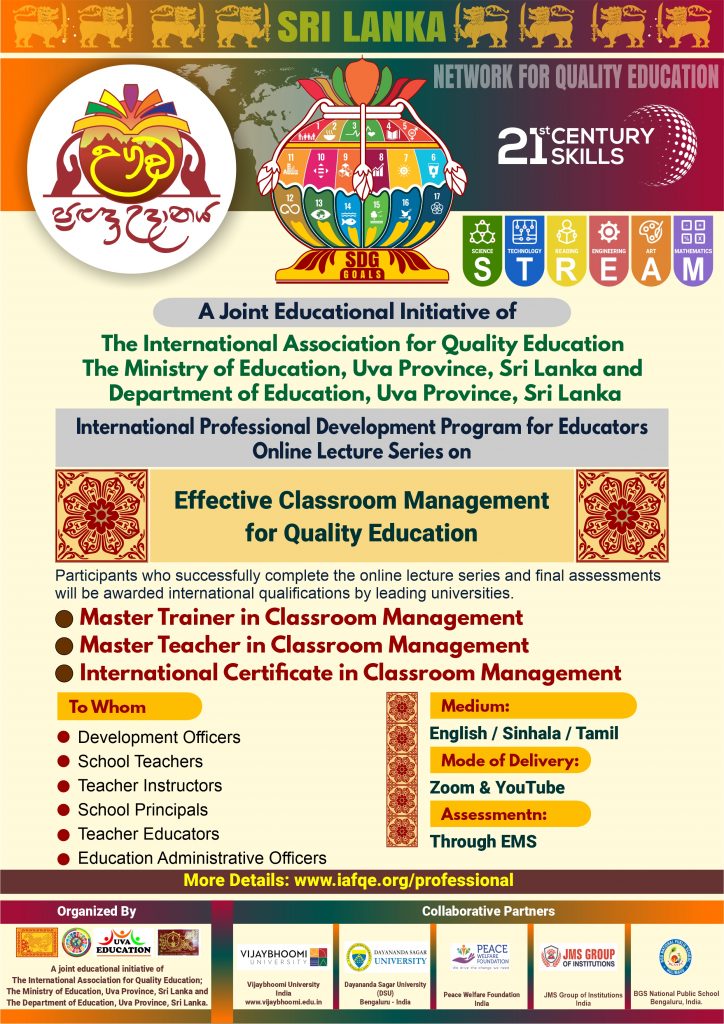
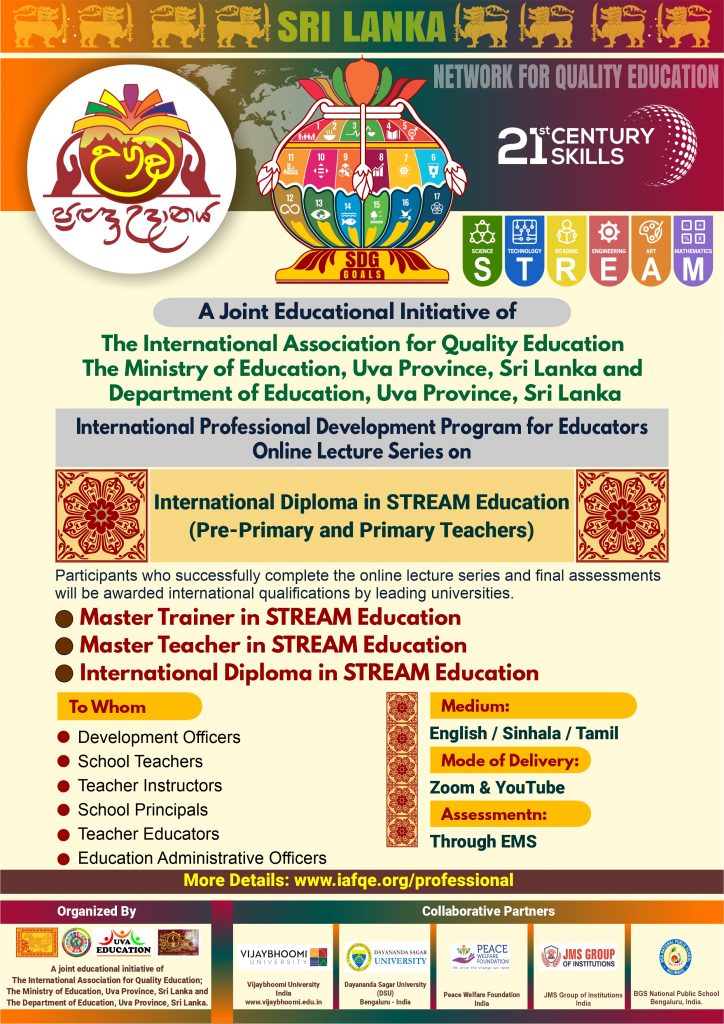
2. Background and Rationale
Global Context
International benchmarks such as UNESCO’s Education 2030 Framework for Action emphasize the importance of developing teachers’ capacity to implement modern teaching strategies. Countries leading in education reform are rapidly shifting towards STEM/STREAM-based education, project-based learning, and AI integration.
Local Context
In Sri Lanka (and similar contexts), while many teachers are academically qualified, there is a gap in practical training in research writing, innovative pedagogy, and classroom application of STREAM education. Teachers often lack opportunities for international exposure and professional recognition.
This initiative directly addresses these gaps by:
* Equipping educators with modern pedagogical skills
* Promoting research-driven practice in schools
* Providing international recognition through certification
3. Objectives
General Objective:
To strengthen the professional capacity of teachers and educational leaders through modern pedagogical approaches and international certification.
Specific Objectives:
*. Train 5,000+ educators in STREAM and innovative pedagogies.
*. Build research capacity by guiding educators to conduct and publish research.
*. Introduce teachers to Artificial Intelligence tools for classroom innovation.
*. Provide internationally recognized certification, enhancing career progression.
*. Foster collaboration between local educators and global experts.
4. Target Audience
*. Pre-primary, primary, and secondary teachers (public & private schools)
*. Principals and deputy principals
*. Teacher educators and master trainers
*. Educational coordinators and curriculum developers
*. Student teachers and undergraduates in education faculties
5. Program Design and Scope
Key Themes Covered
- Early Childhood Education
- STREAM Based Lesson Plan Development for Quality Education
- Modern Teaching Methodologies for Quality Education
- Modern Assesment and Evaluation systems for Quality Education
- Classroom Management for Quality Education
- Spiritual Wellbeing for Quality Education
- Transformative Leadership and Strategic Management for Quality Education
- Special Education for Quality Education
- Artificial Intelligence Integration with Quality Education
- Research Methodologies for Quality Education
- Professional Development for Quality Education
- Parental Counselling for Quality Education
- Educational Quality Assurance
Modern Pedagogical Approaches for Quality Education
-
Experiential Learning (EL)
Project-Based Learning (PJL)
Inquiry-Based Learning (IBL)
Problem-Based Learning (PBL)
Collaborative Learning (CL)
Blended Learning (BL)
Flipped Classroom (FC)
Design Thinking (DT)
Real-World Application (RWA)
Gamification Learning (GL)
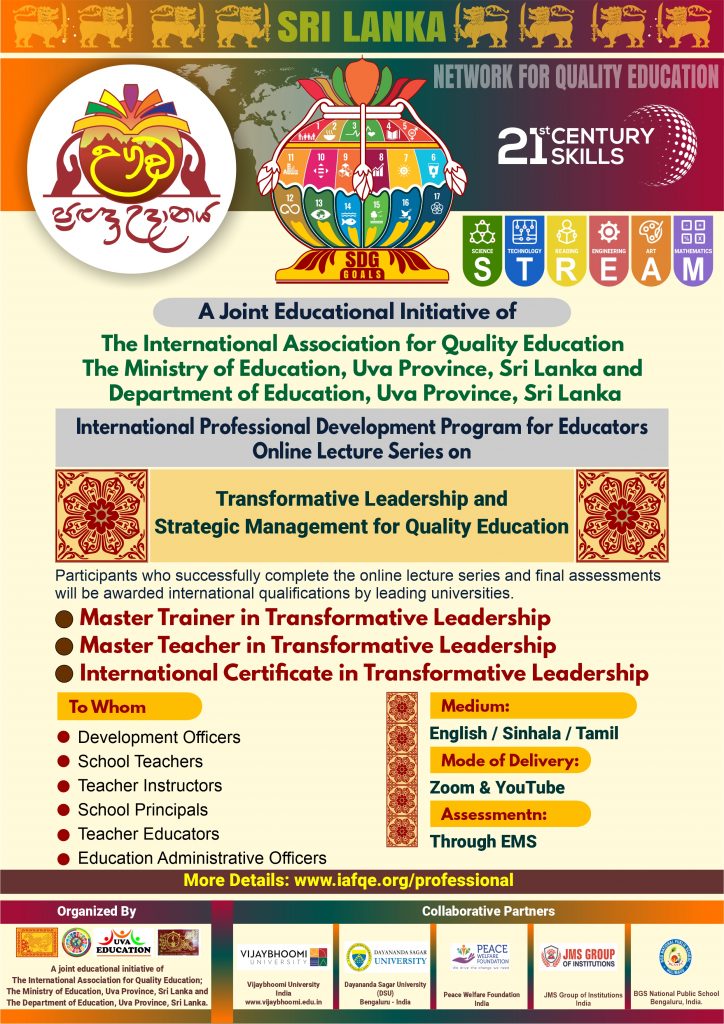
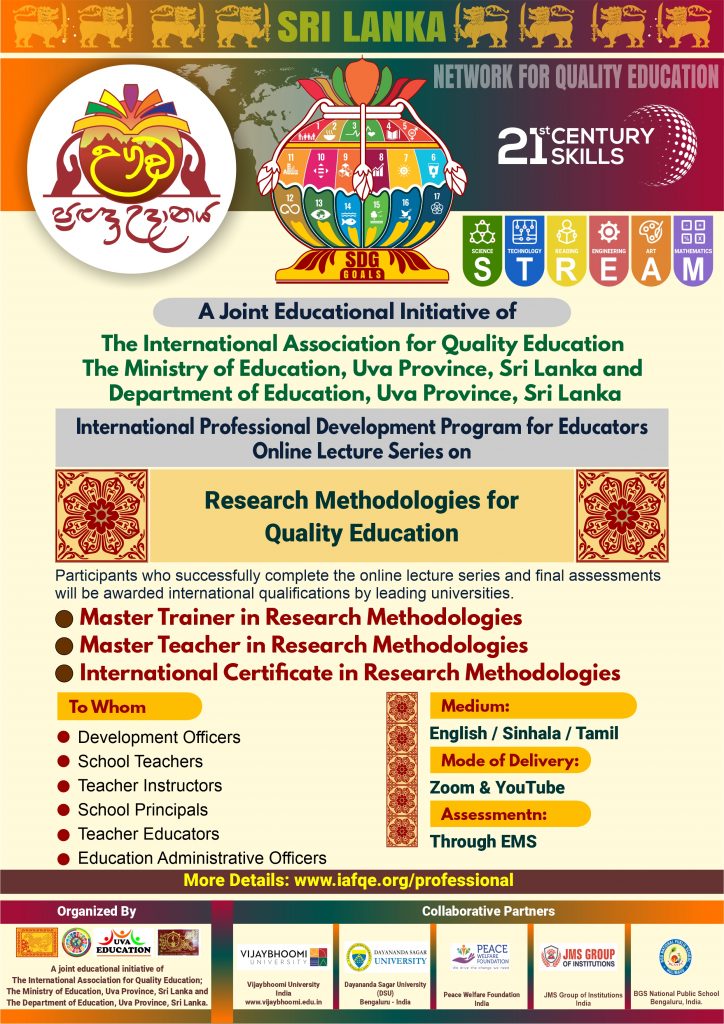
6. Methodology
-
Mode of Delivery: Online (Zoom & YouTube)
Schedule: Evening sessions (after 7:00 PM) to ensure accessibility
Approach: Interactive lectures, case studies, group discussions, and guided assignments
Certification Pathway: Participants seeking certification must complete assessments, research paper submission, and evaluation
7. Assessment and Certification
-
Assessment Tools: Online quizzes, reflective assignments, and a short research paper
Evaluation Committee: Panel of experts from Vijaybhoomi University and IAFQE
Certification: International Certificate in Quality Education awarded by Indian University,
8. Academic Contributions
-
Faculties of Vijaybhoomi University – Mumbai, India
Dr. Sudhakar Umale, Professor, Thakur College of Engineering, Mumbai
Renowned educators and researchers from global universities
9. Timeline (Phase 1)
-
Launch: September 15, 2025
Completion: December 31, 2025
Duration: 20 sessions + assessments
10. Expected Outcomes and Impact
-
Professional Growth – 1,000+ teachers equipped with global best practices.
Research Culture – Increased teacher-led research and publications.
Quality Improvement – Enhanced teaching methods and classroom outcomes.
Policy Alignment – Supports Ministry’s teacher development agenda.
International Exposure – Stronger collaboration with global education experts.
11. Monitoring and Evaluation (M&E)
-
Pre- and post-training surveys to measure knowledge gain
Tracking teacher participation and completion rates
Monitoring publication/presentation of research papers by participants
Feedback reports shared with the Ministry of Education
12. Organizing Bodies
This project is a Joint Educational Endeavor of The International Association for Quality Education and The Ministry of Education, Uva Province, Sri Lanka, with the collaborative partnerships of Universities, organizations, schools, and educational leaders from the global community.
13. Budget (Indicative)
The International Association for Quality Education will cover all expenses associated with the project
14. Sustainability and Future Expansion
-
Phase 1 will be a pilot project.
Future phases may expand regionally and internationally.
A repository of recorded lectures will be developed for long-term use.
A network of certified educators will be established to sustain research and innovation.
15. Conclusion
The International Certificate in Quality Education offers a scalable, cost-effective, and globally recognized model to uplift the teaching profession. By partnering with the Ministry of Education, this initiative will strengthen teacher capacity, modernize classroom practices, and promote Sri Lanka’s leadership in educational innovation.
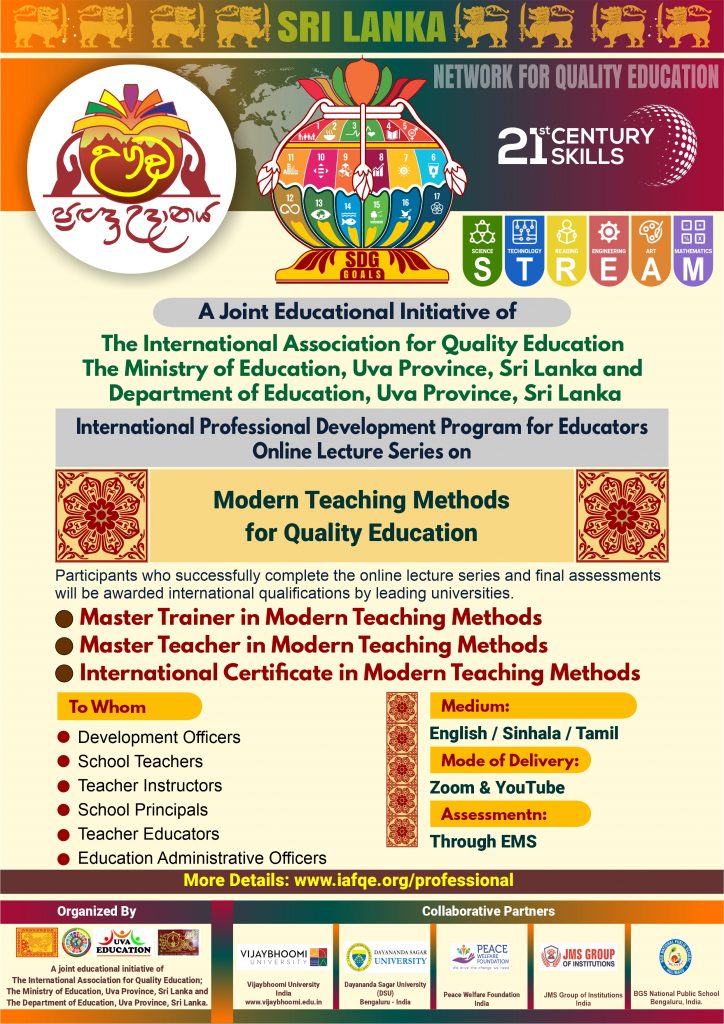
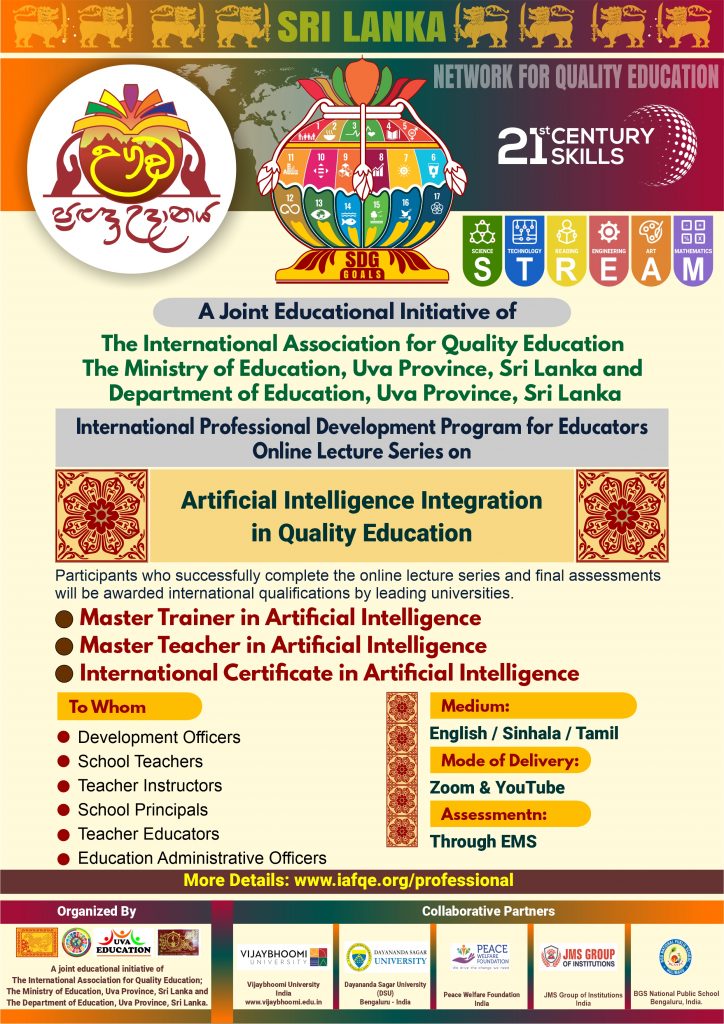
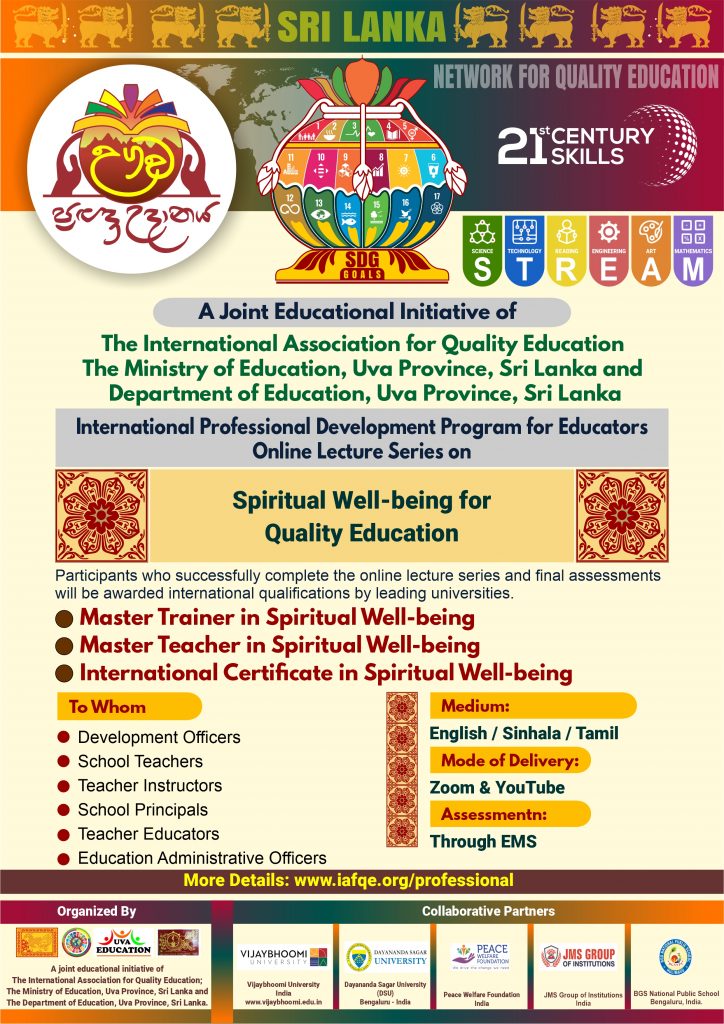
International Professional Development Program for Educators
Specific Subject Areas and Academic Lecture Facilitators
Effective Classroom Management for Quality Education
(Click here to watch all presentations)
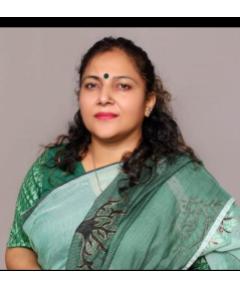
Ms. Priti Tyagi
(Presentation Titles)
Techniques for Writing Good Research Papers and Theses
(Click here to watch all presentations)
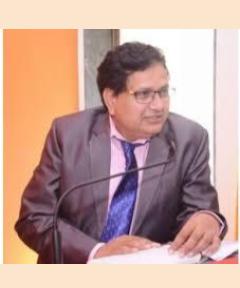
Dr. Sudhakar Umale
Professor,
MME Department, Thakur College of Engineering and Technology, Mumbai.
(Presentation Titles)
Transformative Leadership and Strategic Management for Advancing Educational Excellence
(Click here to watch all presentations)

Dr. Neeraj Mohan Puri
Principal,
Modern Sandeepni School,
Pathankot, CBSE District Training Coordinator And Resource Person, India
(Presentation Titles)
Modern Teaching Methodologies for Quality Education
(Click here to watch all presentations)
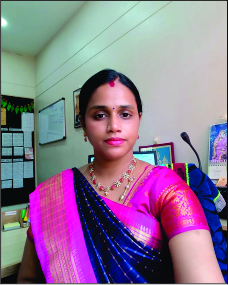
Mrs. Nathiya Jain. S
Early Childhood Educationist,
Principal, The Jains International Montessori
Chennai, Tamil Nadu, India
(Presentation Titles)
Artificial Intelligence Integration with Quality Education
(Click here to watch all presentations)
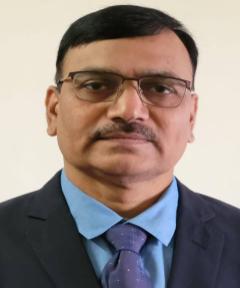
Mr. Avinash Kulkarni
Principal,
Loknete Ramsheth Thakur Public School, Kamothe, India
(Presentation Titles)
Spiritual Well-Being for Quality Education
(Click here to watch all presentations)

Mrs. Meena Yammanur
Educator with 25years of experience
Founder of MYLA
Author and Children Coach
Content and Curriculum Developer at Agile Shaala
(Presentation Titles)
Professional Development for Quality Education
(Click here to watch all presentations)

Dr. Sudhakar Umale
Professor,
MME Department, Thakur College of Engineering and Technology, Mumbai.
(Presentation Titles)
STREAM Based Curiculum Development for Quality Education
(Click here to watch all presentations)
STREAM Based Lesson Plan Development for Primary Education
(Click here to watch all presentations)
Assesment and Evaluation to obtain Certificates, Medals, Awards based on Performance
All lectures are conducted free of charge. All educators may join the sessions live or watch the recorded videos later to enhance their competencies for professional development. We encourage all educators to engage with every presentation and make the most of this valuable opportunity to strengthen their knowledge with international expertise.
Participants who wish to earn certificates, medals, awards, or other professional qualifications must complete all assessment and evaluation requirements by successfully fulfilling the assigned tasks.
When teachers/educators from government schools in Sri Lanka follow these lecture series, if their school principals or senior officers agree to act as the supervisors and assessors for their staff members, those government teachers/educators can complete the assessment process. However, they must still submit the application form, and the supervisor must submit the continuous assessment sheet.
Many educators wish to follow the lecture series and obtain certificates. Since they are located across different geographical regions of the world, technological integration becomes a powerful and convenient tool for easy access. Therefore, the Sri Lanka Education Management System has been adopted for the assessment and evaluation process. By using your username and password, you can log in to the ERP system and access all assessments, question papers, and learning materials required to qualify for international certificates and other professional benefits.
If educators wish to submit assignments through the digital platform and learn with the support and guidance of the Education Management System (EMS), it is recommended that they obtain access to the EMS.
If you would like to use the SL Education Management System for quality improvement, please submit your details through: https://www.iafqe.org/ems.
To access the digital platform, simply log in using your username and password.
International Professional Development Program for Educators Organized By

Ministry of Education
Uv Province, Sri Lanka
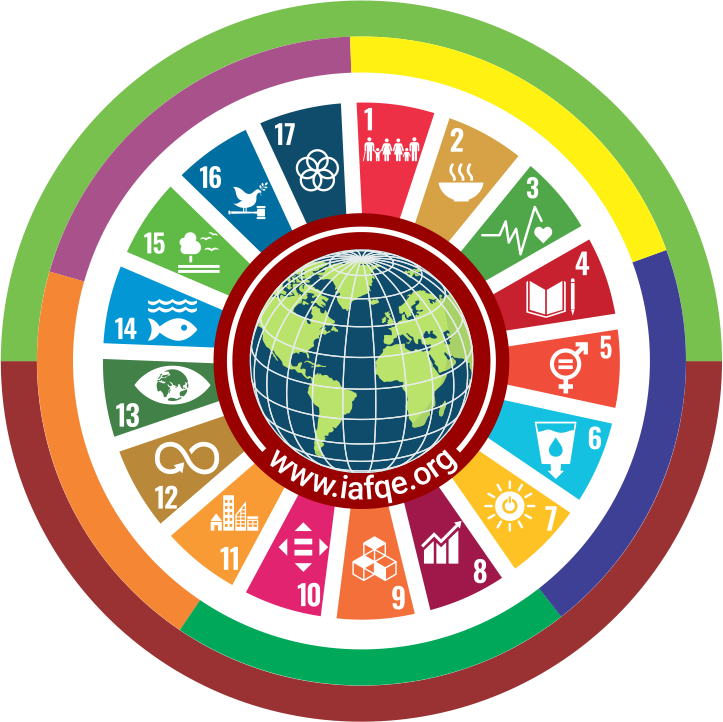
International Association for
Quality Education
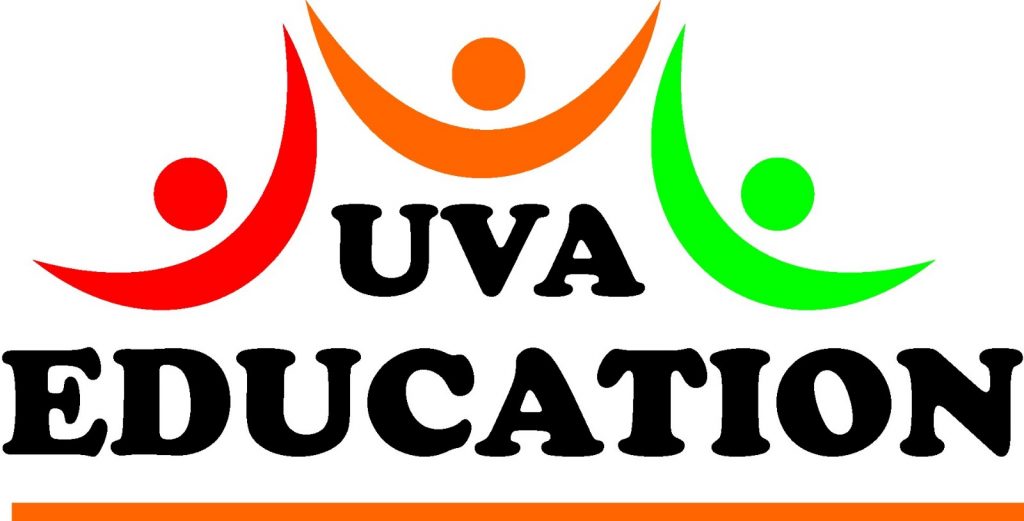
Department of Education
Uva Province, Sri Lanka
International Professional Development Program for Educators
Collaborative Partners





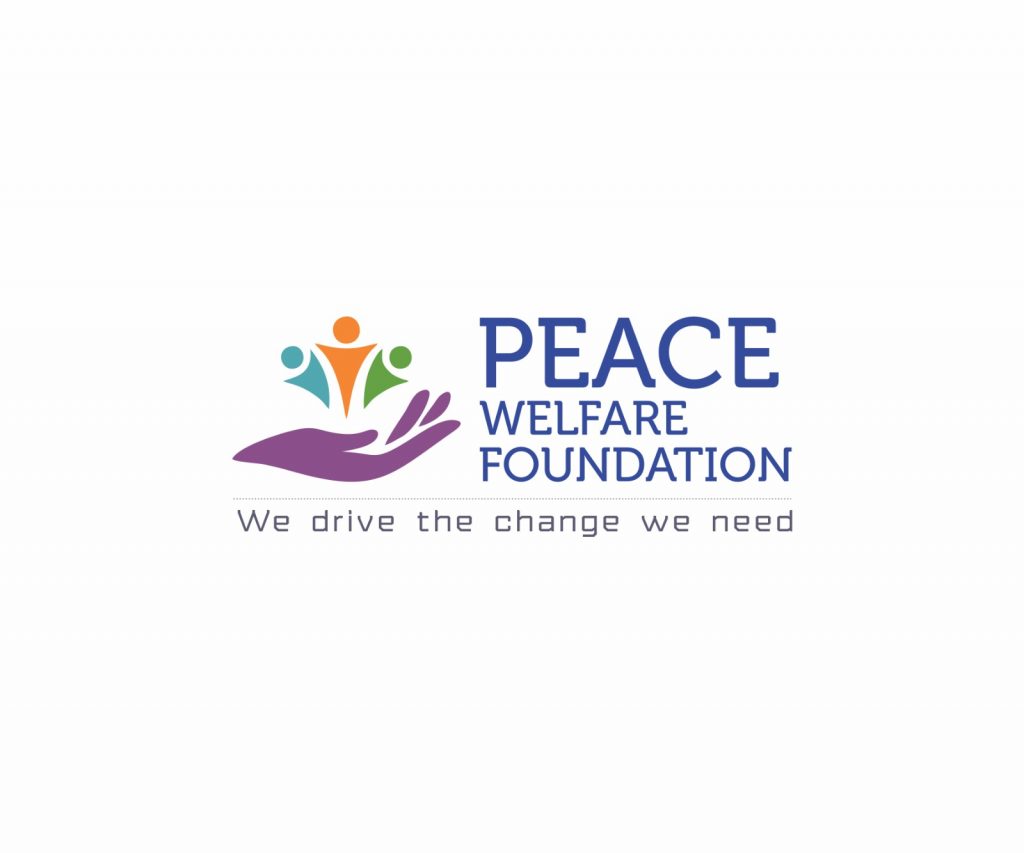
The International Association for Quality Education,
JMS Group of Institutions, India,
JMS World School, India,
in collaborative partnership with
The Ministry of Education, Uva Province, Sri Lanka,
and The Department of Education, Uva Province, Sri Lanka,
are pleased to announce
International Conference on Quality Education, 2026 (2nd Edition)
“Professional Development, Conferences, Research Publication, Networking, Expos, School Visits, Sightseeing, Sustainable Development Goals (SDGs), and Awards for Quality Education”
February 16th – 19th, 2026 – New Delhi, India.
After the conference, an educational tour, academic field trip, and school visits have been arranged from February 20th to March 2nd. Interested delegates may also join these activities.
If you are interested to participate to the International Conference click here for more details.
If you are interested to participate to the International Conference click here for more details.
Office use only
